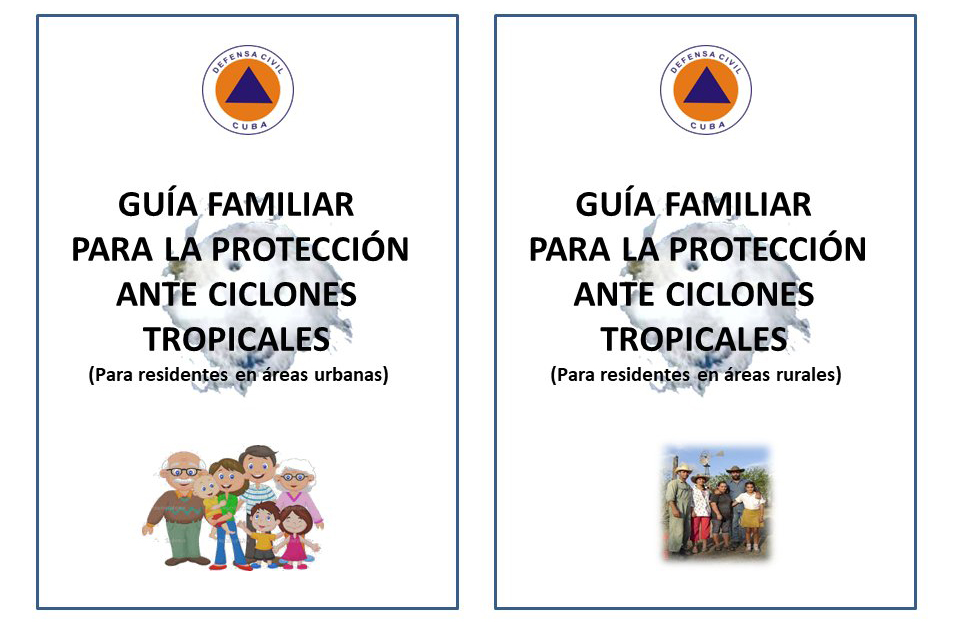
Havana, October 24. - Cuba's Civil Defense recommended from its social media the study and implementation of family guides for protection against tropical cyclones, developed jointly with the Institute of Meteorology and the National Institute of Hydraulic Resources, with the aim of reducing vulnerabilities across the country.
The material is based on Directive No. 1 for Disaster Reduction, issued in April 2010 by the National Defense Council, and draws on experiences from major hydrometeorological events that have affected the nation in recent years.
One of the guides is aimed at residents in urban areas, where buildings pose collapse risks and communities face river, pluvial, and coastal flooding, as well as sea surges.
The second volume focuses on families in rural and mountainous areas, exposed to landslides, river swells, and falling trees due to strong winds.
Among the general guidelines are identifying evacuation centers, preparing a family bag with basic items, and protecting vulnerable people such as the elderly, pregnant women, children, and the disabled.
The content details the need for appropriate clothing, a portable radio, flashlight, batteries, non-perishable foods, drinking water, prescribed medications, and identification documents, all in easily transportable luggage.
It also recommends planning alternative evacuation routes, disconnecting electrical equipment before leaving the home, and coordinating with neighbors for cooperation in emergencies.
For the recovery phase, the guides advise inspecting the technical condition of homes, collaborating with authorities on damage assessments, eliminating mosquito breeding sites, and maintaining strict hygienic-sanitary measures.
In rural areas, they suggest checking corrals, sheds, and crop storage facilities, as well as ensuring the protection of animals and seeds. In urban zones, emphasis is placed on safe food handling and solid waste control.
During the informative phase, families should reinforce roofs and windows, prepare the emergency bag, and stay attentive to instructions from authorities and meteorological services.
In the alert phase, guidance includes occupying designated shelters in time, protecting antennas and solar panels, securing water and hazardous substance storage, and maintaining discipline in protection centers.
The alarm phase requires completing safeguarding actions, avoiding unnecessary travel, not traversing flooded areas or touching electrical wires, and remaining in safe places until authorities indicate otherwise.
In Cuba, Civil Defense emphasizes that these guides are an essential tool for preserving life and mitigating material damage, while reinforcing a culture of prevention among the population.
This guiding principle translates into organizing evacuation plans, preparing shelter centers, and adopting preventive measures in homes, communities, and productive sectors, to reduce vulnerabilities and mitigate damage from hurricanes, tropical storms, or other hydrometeorological phenomena. (Source: ACN)